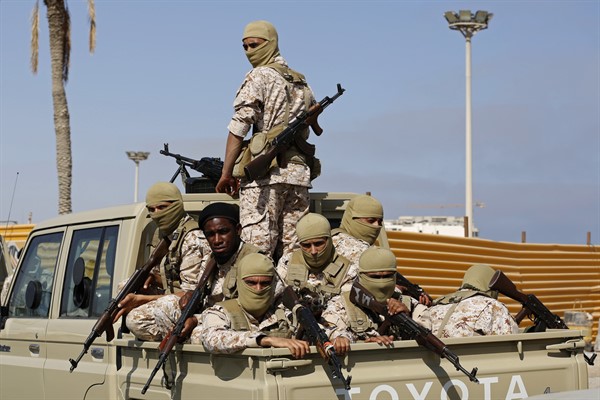Libyans could be forgiven for feeling an uneasy sense of déjà vu in recent months. Last year many had hoped the country was finally moving on from a long struggle between rival authorities. But the Tripoli-based Government of National Unity, or GNU, that was established in 2021 as part of the United Nations-led political process has been challenged since March by a rival government appointed through a disputed parliamentary vote.
Earlier this month the head of that parallel authority, Fathi Bashaga, sparked militia clashes when he tried to install himself in the capital, before ultimately being forced to leave. The episode recalled how Bashaga’s current ally, Khalifa Haftar, a septuagenarian military commander based in eastern Libya, launched an unsuccessful offensive to wrest control of Tripoli in 2019, triggering a war that drew in foreign intervention and mercenaries on both sides. That Bashaga was then a key figure in the effort to thwart Haftar’s offensive is a reminder of how often alliances shift in Libya.
The current political standoff has had economic repercussions that also summon bitter memories. In April, Haftar loyalists returned to the disruptive tactics they had previously used to gain political leverage when they instigated the shutdown of vital oil facilities. The continuing blockade has slashed production in the hydrocarbon-dependent country.

